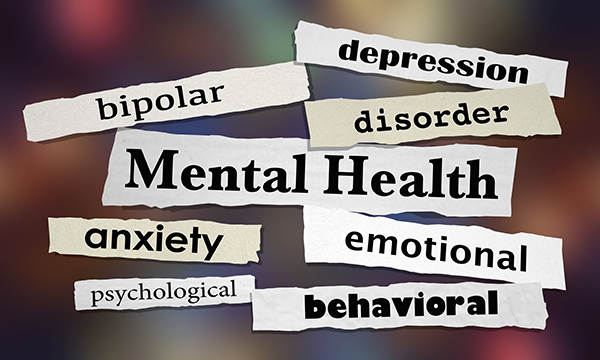The all-important GUT-BRAIN AXIS plays a pivotal role in digestion, immunity, energy, nutrient absorption, and fueling longevity – learn how to fuel this
09/22/2025 / By S.D. Wells

The link between the gut and the brain—known as the gut-brain axis—has become one of the most compelling areas of research in modern medicine. This two-way communication system connects digestion, mood, and mental well-being in ways that science is only beginning to fully understand. According to experts in microbiome research and clinical practice, learning how to support this axis can significantly improve emotional health and resilience.
- The gut-brain axis is a two-way communication system involving the gut microbiota, enteric nervous system, vagus nerve, and neurotransmitters, all of which profoundly influence mood and mental health.
- Imbalances in gut bacteria, chronic gut inflammation, and stress-related dysregulation can contribute to depression, anxiety, and other mental health challenges through disrupted neurotransmitter production and immune responses.
- Practical strategies to support the gut-brain axis include eating a fiber-rich, plant-based diet with probiotics and prebiotics, managing stress through mindfulness and quality sleep, exercising regularly, staying hydrated, and limiting unnecessary antibiotic use.
- By nurturing gut health, individuals can promote emotional resilience, mental clarity, and overall well-being, making the gut-brain connection a key factor in long-term mental health.
How To Nurture Your Gut-Brain Axis for Mental Health
The gut is home to trillions of microorganisms collectively called the gut microbiota. These microbes produce neurotransmitters such as serotonin, dopamine, and GABA, all of which directly influence mood and cognition. When the microbiome is imbalanced, neurotransmitter production can falter, contributing to mental health challenges like anxiety and depression.
Alongside the microbiota, the enteric nervous system (ENS)—sometimes called the “second brain”—regulates digestion and communicates continuously with the central nervous system (CNS). This communication is heavily mediated by the vagus nerve, which transmits signals about digestion, mood, and stress. Stimulating the vagus nerve through relaxation techniques can help regulate emotions. Together, these systems form a complex network linking gut function with psychological health.
Research shows that disruptions in gut health can profoundly influence emotions. For example, chronic gut inflammation may weaken the intestinal lining, creating “leaky gut,” which allows toxins and bacteria into the bloodstream. This immune activation has been strongly linked to mood disorders. Similarly, immune system imbalances in the gut can contribute to neuroinflammation, a factor in depression and anxiety.
The gut-brain axis also plays a role in stress regulation. Chronic stress can disturb microbial balance and impair communication between the gut and brain, intensifying emotional difficulties. Thus, maintaining gut health is not just about preventing digestive problems—it is central to preserving mental clarity and emotional stability.
Practical Ways to Nurture the Gut-Brain Axis
Several lifestyle strategies can strengthen this vital connection:
- Prioritize fiber, plants, and probiotics. A diverse diet rich in fiber, fruits, vegetables, and whole grains nourishes gut bacteria and promotes beneficial compounds. Probiotic foods such as yogurt, kefir, kimchi, and sauerkraut, along with prebiotic foods like garlic, onions, and bananas, support microbiome diversity. Probiotic supplements may also be useful. Avoiding processed foods, refined sugars, and artificial additives helps protect microbial balance.
- Manage stress. Practices like mindfulness, meditation, yoga, and deep breathing not only reduce psychological stress but also improve vagus nerve tone, calming the gut-brain axis. Adequate sleep further restores both digestion and emotional balance.
- Exercise regularly. Physical activity supports healthy digestion, lowers inflammation, and elevates mood. Outdoor exercise provides additional benefits through exposure to nature and fresh air.
- Stay hydrated. Proper hydration aids digestion, nutrient absorption, and overall system function.
- Limit unnecessary antibiotics. Overuse of antibiotics can disrupt gut bacteria; they should be taken only under medical supervision.
In Conclusion…
Caring for the gut-brain axis is an investment in mental health. Through diet, stress management, exercise, hydration, and cautious use of medications, individuals can strengthen the biological foundation of emotional resilience. While approaches must be personalized, the evidence is clear: nurturing this axis is a pathway to greater clarity, balance, and well-being.
Tune your internet dial to NaturalMedicine.news for more tips on how to use natural remedies to improve gut flora and for preventative medicine and for healing, instead of succumbing to Big Pharma products that cause, spread, and exacerbate disease and disorder.
Sources for this article include:
Submit a correction >>
Tagged Under:
brain health, dopamine, flora, gut health, gut-brain axis, inflammation, Misdiagnosis, SSRI, stress
This article may contain statements that reflect the opinion of the author





















